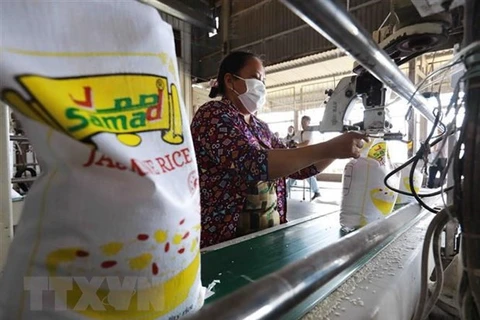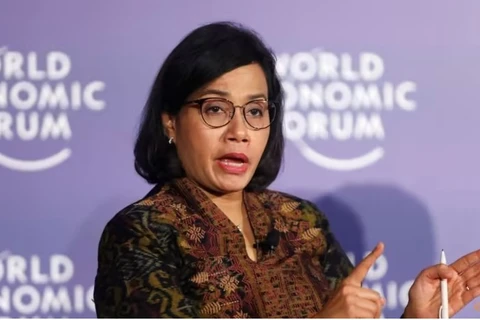 Shipping containers are moved and counted at Tanjung Priok port in North Jakarta, Indonesia (Photo:jakartaglobe.id)
Shipping containers are moved and counted at Tanjung Priok port in North Jakarta, Indonesia (Photo:jakartaglobe.id) Jakarta (VNA) - Indonesia has maintained a trade surplus for 41 consecutive months, even in the face of a declining trend in export performance in September 2023.
The Central Statistics Agency (BPS) reports that Indonesia's export value in September amounted to 20.76 billion USD, a 5.63% decrease compared to August. Meanwhile, imports dropped by 8.15 % to 17.34 billion USD. As a result, Indonesia's trade balance recorded a surplus of 3.42 billion USD, an improvement compared to August's surplus of 3.12 billion USD.
Acting BPS Head Amalia Adininggar Widyasanti told a press conference on October 16 that the surplus is primarily supported by the non-oil and gas sector, amounting to 5.34 billion USD, but it was offset by a deficit in the oil and gas sector amounting to 1.92 billion USD.
The three largest contributors to Indonesia's surplus in September were the US, China, and the Philippines. Meanwhile, the three countries with the deepest deficits were Australia, Thailand, and Brazil.
Cumulatively, Indonesia's trade balance surplus this year to September reached 27.75 billion USD. This figure is lower than the same period in the previous year, which stood at 39.85 billion USD.
Amalia also noted several factors affecting Indonesia's export performance in September, including the impact of El Niño, which is typically felt during the dry season, particularly in July, August, September, and October. Additionally, prices of key commodities in the global market are relatively lower compared to the previous year./.






















